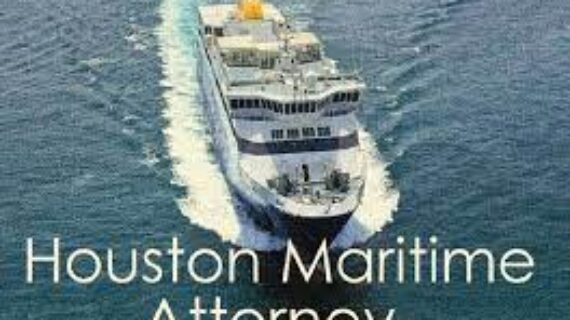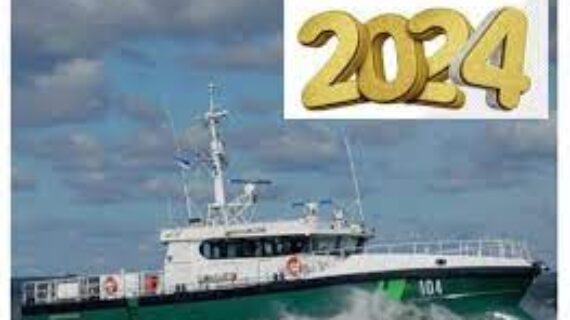
**Maritime Laws Unveiled: A Comparative Look at Houston and UK Accident Regulations**
*Introduction:*
Maritime activities are central to global trade and commerce, with ports like Houston and the UK playing pivotal roles. Understanding the intricate legal frameworks governing maritime accidents is essential for ensuring safety, addressing liability, and facilitating international cooperation. This comprehensive exploration unveils the maritime laws in Houston, USA, and the United Kingdom, offering a comparative analysis of their accident regulations. By delving into the nuanced differences and shared principles, this article aims to shed light on the legal landscapes that shape responses to maritime accidents in these two prominent maritime hubs.
—
**1. The Maritime Landscape in Houston and the UK:**
a. *Economic Significance:* Both Houston and the UK boast thriving maritime industries with significant economic implications. An examination of their economic ties to maritime activities provides context for the legal frameworks that govern accidents in these regions.
b. *Port Dynamics:* The Port of Houston and major UK ports, such as Southampton and Felixstowe, contribute substantially to global trade. Analyzing their infrastructure, traffic, and international connectivity lays the groundwork for understanding the complexities of maritime accident regulations.
c. *Geographical Challenges:* Houston faces challenges in its waterways, and the UK contends with diverse maritime environments, including the English Channel. Understanding the geographical nuances helps unravel the specific legal considerations each region must address in the event of maritime accidents.
—
**2. Legal Foundations: Admiralty and Maritime Law:**
a. *Admiralty Law in Houston:* The admiralty and maritime law form the backbone of Houston’s legal response to accidents. Exploring the foundational principles specific to Houston’s legal traditions provides insights into how this framework shapes accident regulations.
b. *UK Maritime Legal Traditions:* The UK’s legal approach to maritime accidents is influenced by a rich maritime history and its own legal traditions. A comparative analysis with Houston’s legal foundations highlights the divergences and commonalities in their respective legal landscapes.
c. *Federal Admiralty Jurisdiction in the US vs. UK Legal Structures:* The extension of federal admiralty jurisdiction in the U.S. and the UK’s distinct legal structures introduce complexities. Examining how these jurisdictions operate unveils the layers of legal considerations in both regions.
—
**3. Key Federal Statutes: A Comparative Analysis:**
a. *Jones Act in Houston:* The Jones Act assumes a central role in Houston’s response to maritime accidents, particularly those involving seafarers. Contrasting this with the UK’s legal provisions for seafarer protections provides a comparative perspective on regulatory approaches.
b. *UK Maritime Legislation:* The UK employs a comprehensive set of maritime legislation, including the Merchant Shipping Act. A comparative analysis with Houston’s federal statutes, such as the Jones Act, reveals the regulatory frameworks governing maritime accidents in these regions.
c. *Longshore and Harbor Workers’ Compensation Act (LHWCA) vs. UK Equivalents:* A detailed examination of the LHWCA and its UK counterparts provides insights into compensation and benefits for maritime workers. Comparing these frameworks contributes to understanding how both regions address worker welfare in the aftermath of accidents.
—
**4. Types of Maritime Accidents: A Comparative Perspective:**
a. *Vessel Collisions:* Both Houston’s waterways and the UK’s crowded maritime routes pose risks of vessel collisions. Analyzing how regulations address liability, compensation, and preventive measures unveils the shared and distinct approaches to this common type of accident.
b. *Oil Spills and Environmental Incidents:* The petrochemical industry’s prominence in Houston and the UK’s offshore activities introduce shared concerns about oil spills. Examining how regulations address environmental impact, cleanup responsibilities, and liability for damages provides a comparative understanding.
c. *Offshore Accidents:* Houston’s offshore activities in the Gulf of Mexico and the UK’s involvement in North Sea operations lead to offshore accidents. A comparative analysis of how both regions extend maritime accident regulations to offshore incidents highlights the legal challenges and responses.
—
**5. Regulatory Oversight for Safety: US Coast Guard vs. UK Authorities:**
a. *U.S. Coast Guard Regulations in Houston:* The U.S. Coast Guard plays a central role in enforcing safety regulations in Houston. Contrasting this with the UK’s Maritime and Coastguard Agency (MCA) sheds light on the regulatory bodies overseeing safety in these maritime hubs.
b. *Occupational Safety and Health Administration (OSHA) vs. UK Workplace Regulations:* OSHA regulations extend to maritime workplaces in Houston, while the UK has its workplace safety regulations. A comparative analysis reveals how both regions ensure adherence to safety protocols, training requirements, and hazard mitigation.
c. *Environmental Protection Agency (EPA) vs. UK Environmental Regulations:* The EPA enforces environmental regulations in Houston, while the UK relies on its environmental agencies. A comparative exploration unveils how both regions address discharges, spills, and pollution prevention in the context of maritime accidents.
—
**6. Legal Communities and Industry Collaboration: A Cross-Atlantic Perspective:**
a. *Legal Practitioners:* Both Houston and the UK boast robust maritime legal communities. An exploration of the expertise of attorneys, law firms, and legal experts specializing in admiralty and maritime law provides insights into the collaborative efforts shaping accident regulations.
b. *Collaboration with Industry Stakeholders:* The collaboration between legal professionals and industry stakeholders is critical for a comprehensive approach to responding to maritime accidents. Analyzing collaborative efforts enhances the exchange of knowledge and best practices on both sides of the Atlantic.
c. *Maritime Insurance Providers: A Comparative Study:* Insurance dynamics play a pivotal role in addressing liability and compensation in maritime accidents. A comparative study of maritime insurance providers in Houston and the UK sheds light on how insurance practices influence legal perspectives in the aftermath of accidents.
—
**7. Landmark Maritime Accident Cases: Lessons from the Past:**
a. *Exxon Valdez Oil Spill Impact:* While not directly in Houston, the legal repercussions of the Exxon Valdez oil spill set precedents that resonate in maritime law. Comparing this with landmark cases in the UK unveils the lessons learned and their influence on shaping accident regulations.
b. *Deepwater Horizon Disaster: A Transatlantic Impact:* The Deepwater Horizon disaster in the Gulf of Mexico had implications for Houston’s maritime legal landscape. Analyzing its impact and comparing it with UK incidents reveals the transatlantic influence on regulatory changes and lessons learned from catastrophic events.
c. *Jones Act Cases in Houston vs. UK Equivalents:* Landmark Jones Act cases in Houston illustrate the application of this statute in responding to accidents involving seafarers. Contrasting these cases with the UK’s equivalents provides a cross-Atlantic perspective on the legal strategies and outcomes in maritime accident litigation.
—
**8. Alternative Dispute Resolution in Maritime Laws: Comparative Efficiency and Challenges:**
a. *Arbitration and Mediation in Houston:* Given the complexity of maritime accident cases, alternative dispute resolution mechanisms offer efficient ways to resolve disputes. Examining the role of arbitration and mediation in Houston’s legal landscape provides insights into how these methods contribute to the resolution of disputes.
b. *Comparative Benefits and Challenges:* Legal professionals in Houston and the UK navigate the benefits and challenges of alternative dispute resolution. Factors such as confidentiality, cost-effectiveness, and preserving ongoing business relationships influence the choice of dispute resolution methods, and a comparative study sheds light on the efficiency of these mechanisms.
—
**9. Emerging Trends in Maritime Laws: Adapting to the Future:**
a. *Technological Advancements in Houston and the UK

2nd news :
**Navigating Legal Currents: Understanding Maritime Accident Laws in Houston and the United Kingdom**
*Introduction*
Maritime activities play a pivotal role in global trade and commerce, connecting nations and facilitating the transportation of goods across vast oceans. However, with the immense scale and complexity of maritime operations, accidents are an unfortunate reality. When these accidents occur, understanding the legal frameworks that govern them becomes crucial. This comprehensive exploration will delve into the maritime accident laws in two significant jurisdictions – Houston, USA, and the United Kingdom. By navigating through the legal currents of these regions, we aim to shed light on the regulations, liabilities, and procedures that shape the resolution of maritime accidents.
*Maritime Accidents: An Overview*
Maritime accidents encompass a broad spectrum of incidents, ranging from collisions, groundings, and oil spills to personal injuries and fatalities. The maritime industry is inherently risky, and accidents can occur due to a myriad of factors, including human error, technical malfunctions, adverse weather conditions, or even intentional acts.
*Houston Maritime Laws*
Houston, Texas, stands as a major hub for maritime activities, given its strategic location along the Gulf of Mexico. The legal framework governing maritime accidents in Houston is primarily influenced by federal laws, including the Jones Act, the Longshore and Harbor Workers’ Compensation Act (LHWCA), and the Death on the High Seas Act (DOHSA).
**Jones Act:**
The Jones Act, officially known as the Merchant Marine Act of 1920, is a cornerstone of maritime law in the United States. It provides seamen with the right to sue their employers for negligence resulting in injuries. This act, unique to American maritime law, ensures that injured seamen are entitled to compensation, medical care, and, in some cases, punitive damages.
**LHWCA:**
The Longshore and Harbor Workers’ Compensation Act (LHWCA) complements the Jones Act by covering maritime workers who are not considered seamen. It provides compensation for employees engaged in maritime activities, such as dockworkers and shipbuilders, who may suffer injuries or occupational diseases during the course of their employment.
**DOHSA:**
The Death on the High Seas Act (DOHSA) addresses fatalities occurring beyond three nautical miles from the U.S. coastline. It allows certain family members of the deceased to seek compensation for the loss of their loved ones, including financial support, funeral expenses, and other damages.
*Liabilities and Compensation in Houston:*
Liabilities in Houston’s maritime laws extend beyond shipowners to include vessel operators, employers, and even manufacturers of defective maritime equipment. Compensation for injuries may include medical expenses, lost wages, pain and suffering, and vocational rehabilitation.
*United Kingdom Maritime Laws*
In the United Kingdom, maritime laws are shaped by a combination of international conventions, European Union regulations (as applicable), and domestic legislation. The UK’s maritime legal framework addresses a wide array of issues, from personal injuries and collisions to pollution incidents and salvage operations.
**Merchant Shipping Act 1995:**
The Merchant Shipping Act 1995 is a key piece of legislation that regulates various aspects of shipping and maritime activities in the UK. It covers vessel registration, safety standards, and the investigation of maritime accidents.
**International Conventions:**
The UK is a party to several international conventions that influence its maritime laws. These include the International Maritime Organization (IMO) conventions, such as the International Convention for the Safety of Life at Sea (SOLAS) and the International Convention on Civil Liability for Bunker Oil Pollution Damage (BUNKERS).
**Limitation of Liability Act 1989:**
The Limitation of Liability Act 1989 allows shipowners to limit their liability for certain maritime claims, such as collisions or oil spills. This act establishes a system whereby the shipowner can limit their liability to the value of the vessel and its freight.
*Liabilities and Compensation in the UK:*
In the United Kingdom, liabilities for maritime accidents extend to shipowners, charterers, and operators. Compensation may include damages for personal injuries, property damage, and economic losses. The UK legal system emphasizes the principle of proportionate liability, where each party involved in the accident is held responsible for its share of the fault.
*Comparative Analysis: Houston vs. United Kingdom*
While both Houston and the United Kingdom share the goal of ensuring fair compensation and resolution of maritime accidents, there are notable differences in their legal approaches. The most prominent distinction lies in the reliance on federal laws in the United States, particularly the Jones Act, which provides unique protections to seamen. In contrast, the UK places more emphasis on international conventions and domestic legislation.
*Procedures for Resolving Maritime Disputes*
Resolving maritime disputes involves a complex interplay of legal, procedural, and jurisdictional factors. Both Houston and the United Kingdom provide mechanisms for resolving such disputes, often involving specialized admiralty or maritime courts.
**Houston’s Admiralty Courts:**
Houston’s federal admiralty courts have jurisdiction over maritime cases. These courts are equipped to handle a wide range of maritime disputes, from personal injury claims to environmental damage cases. The procedural rules in admiralty courts are designed to expedite the resolution of maritime disputes, recognizing the time-sensitive nature of such matters.
**UK Admiralty Court:**
The UK Admiralty Court, situated in London, has exclusive jurisdiction over maritime claims. It operates under the Civil Procedure Rules, and its decisions can be appealed to higher courts. The Admiralty Court is known for its efficiency and expertise in handling complex maritime cases.
*Challenges and Emerging Trends*
Navigating legal currents in maritime accident laws is not without its challenges. The evolving nature of the maritime industry, technological advancements, and environmental concerns introduce new complexities to legal frameworks. Additionally, the potential impacts of Brexit on the UK’s maritime laws and the continuous evolution of international conventions pose challenges for both Houston and the United Kingdom.
**Technological Advances:**
The integration of advanced technologies, such as autonomous vessels and digital navigation systems, raises questions about liability in the event of accidents. Determining responsibility becomes more intricate when human error is replaced by technological malfunctions.
**Environmental Concerns:**
The increasing focus on environmental protection adds a layer of complexity to maritime accident laws. Accidents resulting in oil spills or other environmental damages trigger stringent regulations and significant liabilities, necessitating a balance between economic interests and ecological preservation.
**Brexit and Its Implications:**
The UK’s withdrawal from the European Union, commonly known as Brexit, has implications for its maritime laws. While the UK remains a party to many international maritime conventions, negotiations and adjustments to domestic legislation are ongoing, impacting the legal landscape for maritime accidents.
*Conclusion*
Understanding maritime accident laws in Houston and the United Kingdom requires a comprehensive exploration of federal acts, international conventions, and domestic legislation. Both jurisdictions strive to strike a balance between protecting the rights of individuals affected by maritime accidents and facilitating the smooth operation of the maritime industry.
As the maritime landscape continues to evolve with technological advancements, environmental considerations, and geopolitical changes, staying abreast of these developments is essential for legal professionals, industry stakeholders, and policymakers. By navigating the legal currents of maritime accident laws, Houston and the United Kingdom can adapt to emerging challenges, ensuring a fair and efficient resolution of disputes in this vital sector of global commerce.

3rd news:
**Laws of the Gulf: A Comprehensive Guide to Maritime Accident Regulations in Houston**
*Introduction:*
Houston, often referred to as the “Energy Capital of the World,” stands at the forefront of maritime activities with its bustling Port and strategic location along the Gulf of Mexico. The maritime industry, integral to the city’s economic fabric, comes with inherent risks, and understanding the comprehensive legal framework governing maritime accidents is paramount. “Laws of the Gulf” serves as a detailed guide to unraveling the intricate regulations that shape Houston’s response to maritime accidents. This comprehensive exploration delves into the legal intricacies, regulatory measures, and industry dynamics that define the maritime accident landscape in the Gulf.
—
**1. The Gulf of Mexico: A Maritime Nexus for Houston:**
a. *Geographical Significance:* Houston’s proximity to the Gulf of Mexico positions it as a major maritime hub. An exploration of the Gulf’s geographical features, including intricate waterways and diverse ecosystems, sets the stage for understanding the unique challenges of maritime activities in this region.
b. *Economic Impact:* The Gulf’s economic significance to Houston cannot be overstated. Examining the role of maritime activities, including shipping, oil and gas exploration, and fisheries, elucidates the economic impact that necessitates a robust legal framework for handling accidents.
c. *Environmental Considerations:* The Gulf’s ecological sensitivity requires careful consideration in the aftermath of maritime accidents. Analyzing the legal measures in place for environmental protection and restoration highlights the balance between economic activities and environmental stewardship.
—
**2. Legal Foundations: Admiralty and Maritime Law in the Gulf:**
a. *Admiralty Law’s Pivotal Role:* The Gulf’s maritime legal response is deeply rooted in admiralty and maritime law. Unveiling the foundational principles of this specialized legal framework provides insights into how it uniquely shapes Houston’s approach to maritime accidents in the Gulf.
b. *Federal Admiralty Jurisdiction:* The extension of federal admiralty jurisdiction over the Gulf introduces complexities in legal proceedings. A closer look at the interplay between federal and state laws reveals the nuanced legal landscape governing maritime accidents in this crucial region.
c. *Texas Legal Traditions in the Gulf:* Houston’s legal traditions, influenced by Texas’ common law principles, contribute to the Gulf’s unique legal environment. A comparative analysis with other legal traditions helps understand the divergences and commonalities that define the legal responses to accidents in the Gulf.
—
**3. Key Federal Statutes: Shaping Houston’s Gulf-Specific Response:**
a. *Jones Act and Gulf Operations:* The Jones Act assumes a central role in Houston’s response to maritime accidents, particularly those within the Gulf. An in-depth analysis of how this statute governs liability, compensation, and employer responsibilities provides critical insights into Houston’s Gulf-specific legal response.
b. *Outer Continental Shelf Lands Act (OCSLA):* The OCSLA extends regulations to the outer continental shelf, a crucial aspect of Gulf operations. Understanding its implications for offshore accidents, which are prevalent in the Gulf, is vital for legal practitioners navigating the complexities of maritime accidents in this region.
c. *Oil Pollution Act (OPA) and Gulf Spills:* The Gulf’s association with the oil and gas industry emphasizes the significance of the Oil Pollution Act. Examining how OPA governs oil spills, response mechanisms, and liability provisions sheds light on Houston’s legal strategies in the face of Gulf-specific accidents.
—
**4. Types of Maritime Accidents in Gulf Waters: A Comprehensive Overview:**
a. *Vessel Collisions in the Gulf:* The Gulf’s busy waterways pose a constant risk of vessel collisions. Examining regulations governing liability, compensation, and preventive measures provides insights into Houston’s Gulf-specific strategies for responding to accidents of this nature.
b. *Offshore Accidents in Gulf Exploration:* Offshore activities, including drilling and exploration in the Gulf, contribute significantly to Houston’s maritime dynamics. Analyzing how maritime accident regulations extend to offshore incidents in the Gulf offers a nuanced understanding of the legal challenges posed by these specific accidents.
c. *Environmental Incidents and Gulf Ecosystem Protection:* The Gulf’s rich ecosystem necessitates stringent regulations regarding environmental incidents. A thorough exploration of Houston’s response strategies for oil spills and other environmental accidents underscores the commitment to protecting the Gulf’s unique natural resources.
—
**5. Regulatory Oversight for Safety: U.S. Coast Guard’s Gulf Role:**
a. *U.S. Coast Guard Regulations in the Gulf:* The U.S. Coast Guard plays a central role in enforcing safety regulations in the Gulf. A comprehensive review of Coast Guard regulations, inspections, and enforcement actions specific to Gulf operations is vital for ensuring compliance with safety standards and mitigating accidents.
b. *Gulf-Specific OSHA Regulations:* Occupational Safety and Health Administration (OSHA) regulations extend to maritime workplaces in the Gulf. Examining Gulf-specific safety protocols, training requirements, and hazard mitigation unveils the measures in place to prevent accidents and ensure worker safety.
c. *Environmental Protection Agency (EPA) and Gulf Ecosystem Conservation:* The EPA’s role in enforcing regulations impacting maritime activities in the Gulf is integral to environmental conservation. Compliance with regulations related to discharges, spills, and pollution prevention contributes to Houston’s commitment to preserving the Gulf’s ecosystem in the aftermath of accidents.
—
**6. Houston’s Legal Community in the Gulf: Collaboration and Expertise:**
a. *Legal Practitioners in Gulf-Specific Cases:* Houston boasts a robust maritime legal community comprising attorneys, law firms, and legal experts specializing in Gulf-specific cases. Their expertise is instrumental in representing clients involved in maritime accidents, guiding them through the intricacies of the legal landscape in the Gulf.
b. *Collaboration with Gulf Industry Stakeholders:* The collaboration between legal professionals and Gulf industry stakeholders is critical for a comprehensive approach to responding to maritime accidents. Analyzing collaborative efforts enhances the exchange of knowledge and best practices in the Gulf’s unique maritime environment.
c. *Maritime Insurance Providers in Gulf Operations:* Insurance dynamics play a pivotal role in addressing liability and compensation in Gulf-specific maritime accidents. A detailed study of maritime insurance providers in Houston sheds light on how insurance practices influence legal perspectives in the aftermath of accidents in the Gulf.
—
**7. Landmark Maritime Accident Cases in Gulf Waters: Learning from Precedents:**
a. *Deepwater Horizon Disaster Impact:* The Deepwater Horizon disaster in the Gulf of Mexico had far-reaching implications for Houston’s maritime legal landscape. Analyzing its impact on regulations, legal proceedings, and the industry offers valuable insights for future Gulf-specific responses to maritime accidents.
b. *Jones Act Cases in Gulf Operations:* Landmark Jones Act cases in Houston illustrate the application of this statute in responding to accidents within the Gulf. Precedents set in these cases significantly influence legal strategies, outcomes, and the continual refinement of regulations for Gulf-specific accidents.
c. *Gulf-Specific Environmental Cases:* Environmental incidents in the Gulf have led to landmark legal cases. Examining these cases and their impact on regulations demonstrates the Gulf’s commitment to holding parties accountable and learning from past accidents to enhance preventive measures.
—
**8. Alternative Dispute Resolution in Gulf-Specific Maritime Cases: Efficiency and Challenges:**
a. *Arbitration and Mediation in Gulf Accidents:* Given the complex nature of Gulf-specific maritime accident cases, alternative dispute resolution mechanisms offer efficient avenues for resolution. Their role in achieving timely and equitable resolutions is significant in the Gulf’s legal landscape, especially in the aftermath of accidents.
b. *Benefits and Challenges of ADR in


our company offer :







Leave a Reply